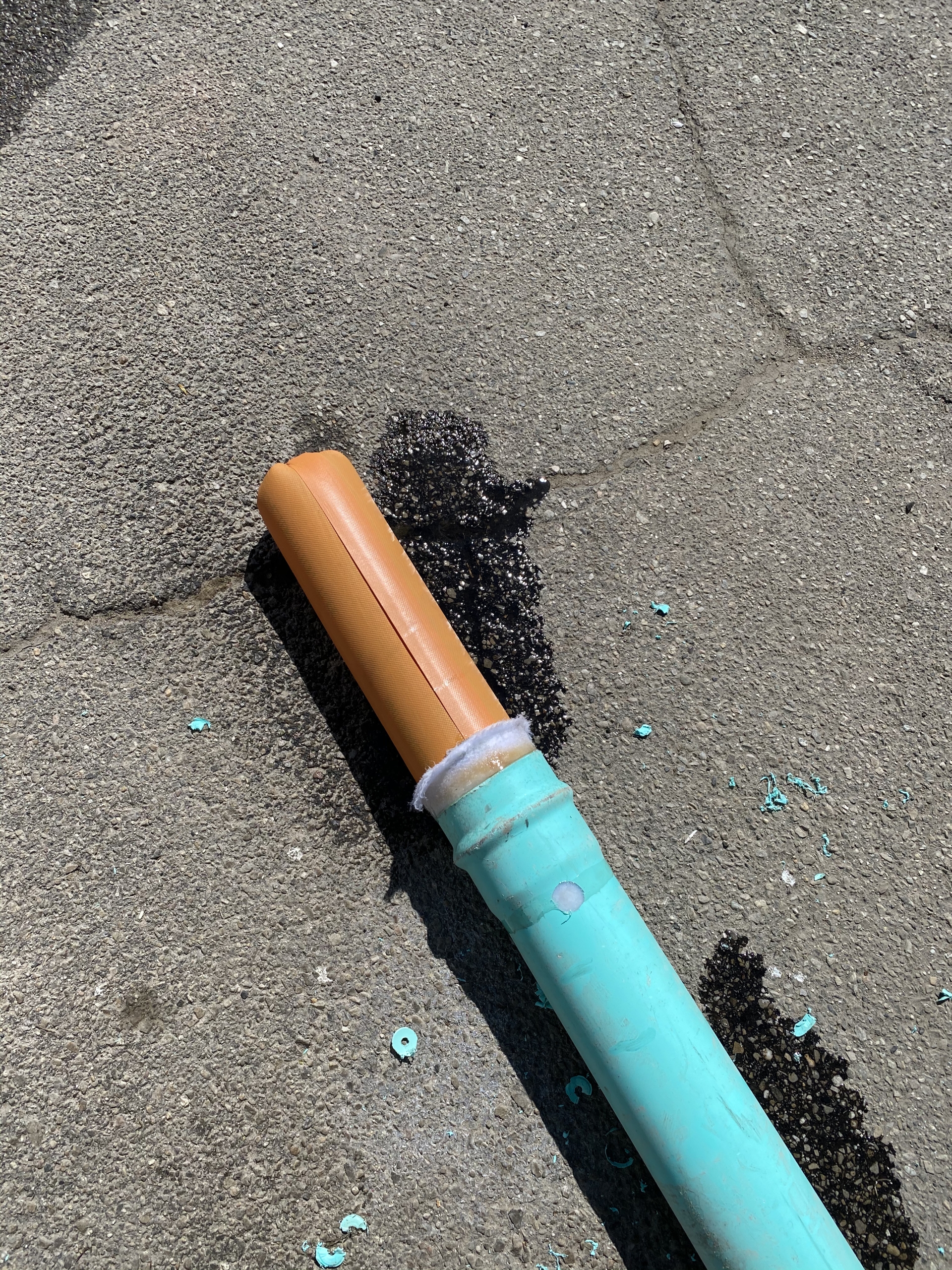Dealing with a blocked sewer line can be a homeowner’s nightmare, often resulting in costly repairs and significant inconvenience. Understanding the root causes of these blockages can greatly aid in preventing them and maintaining an efficient and healthy home plumbing system. Our professionals specialize in addressing and preventing the common issues that lead to sewer line blockages.
Join us as we outline the top five causes of residential sewer line blockages and provides professional tips on proper maintenance and care. By taking proactive steps, you can ensure the longevity and reliability of your home’s sewer system, avoiding the hassles of unexpected repairs and ensuring a smoother, more functional plumbing network.
Grease Buildup: A Slippery Culprit
One of the most common causes of sewer line blockages in residential settings is the accumulation of grease. Often, homeowners might wash cooking oils and fats down the kitchen sink, which solidify in the sewer lines, gradually creating clogs. To prevent this, never dispose of grease in your sink. Instead, allow it to cool and solidify in a container, then discard it with solid waste. Additionally, using strainers in sink drains can catch food scraps that might contribute to blockages. Our professionals can perform regular checks and cleanings to ensure that any minor accumulations are cleared up before they escalate into major blockages.
Tree Root Intrusions: Nature’s Pipe Invaders
Another major issue for residential sewer lines involves tree roots seeking moisture. They can infiltrate small cracks in the pipes, gradually expanding and eventually causing significant blockages or damage. To combat this, it’s crucial to monitor the growth of all trees near your property’s sewer lines. If roots are already a problem, our technicians can use root cutting equipment to clear the pipes and recommend either mechanical root cutting or safe chemical treatments to inhibit further growth. Regular inspections can help identify which areas might become problematic and address them proactively.
Flushing Non-Disposables: The Bathroom Blunder
Sewer line clogs often occur due to items being flushed down the toilet that should not be. Only human waste and toilet paper should be flushed. Products such as wipes (even those labeled flushable), feminine hygiene products, cotton swabs, and dental floss can create severe blockages as they do not disintegrate easily. Homeowners should have a bin in the bathroom for disposing of these types of items. Our team offers education during service visits on what should and should not go down toilets and can install toilet attachments that help prevent non-disposable items from being accidentally flushed.
Excessive Disposal of Paper Products
Excess use of toilet paper or flushing paper towels and other paper products down toilets can easily lead to sewer line blockages. It’s important to use an appropriate amount of toilet paper and ensure that products like paper towels, which are designed to be more durable, are disposed of in the trash rather than the toilet. We recommend conducting regular maintenance checks, especially in households with multiple bathrooms, to clear potential developing clogs early, ensuring that your sewer lines remain free-flowing.
Regular Maintenance: The Key to Prevention
Regular maintenance is essential in preventing sewer line blockages. Our technicians recommend a routine inspection and cleaning schedule tailored to the specific needs and usage patterns of your residential plumbing systems. Hydro jetting, a method using high-pressure water to remove blockages and build-up inside pipes, is an effective maintenance technique that we often employ. This not only clears existing blockages but also cleans the interior surfaces of the pipes, which helps to prevent future build-ups.
Furthermore, using enzyme-based cleaners monthly can help maintain the health of your sewer lines. These natural cleaners break down organic material without harming the plumbing or the environment, providing a gentle but effective preventive measure.
Addressing Sewer Line Aging
Over time, sewer pipes deteriorate due to normal wear and tear, which can lead to cracks and collapses that cause blockages. Older homes with clay or cast-iron pipes are particularly susceptible. We advise homeowners to have older sewer lines inspected annually to assess their condition and determine if relining or replacement is necessary. Our team is equipped to handle sewer line repairs and replacements using the latest techniques and materials, minimizing disruption to your property and ensuring long-lasting results.
Ensure Long-Lasting Efficiency with Our Experts
Maintain the integrity and efficiency of your home’s sewer system with proactive support from Expert Services – Plumbing, Heating, Air & Electrical. Our team of plumbers in Orem is dedicated to providing you with the knowledge, tools, and services necessary to prevent common causes of sewer line blockages. From routine maintenance to more complex repairs, we ensure that your plumbing issues are resolved quickly and effectively with minimal disruption to your daily life.
Don’t let sewer line blockages become a costly nuisance. Reach out to us today for a comprehensive evaluation and tailored maintenance plan that fits your home’s specific needs. Secure your peace of mind with our expert care and enjoy a hassle-free residential environment.
